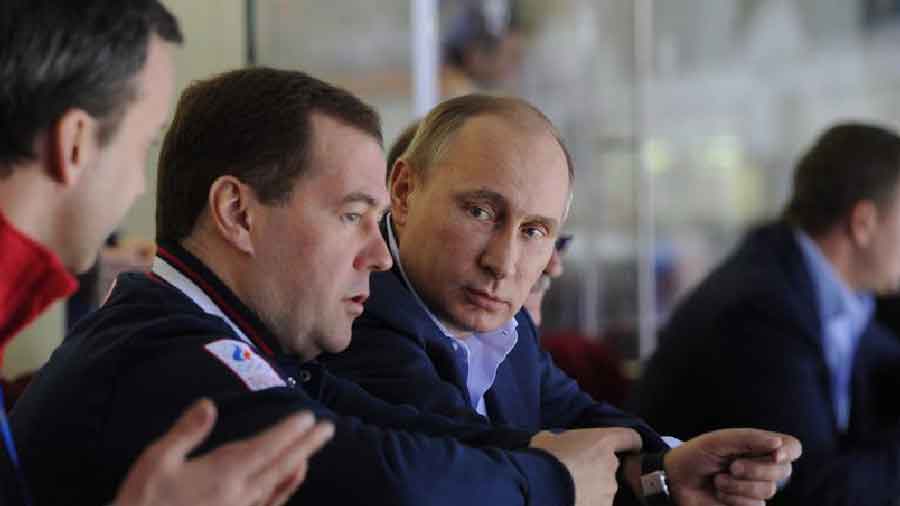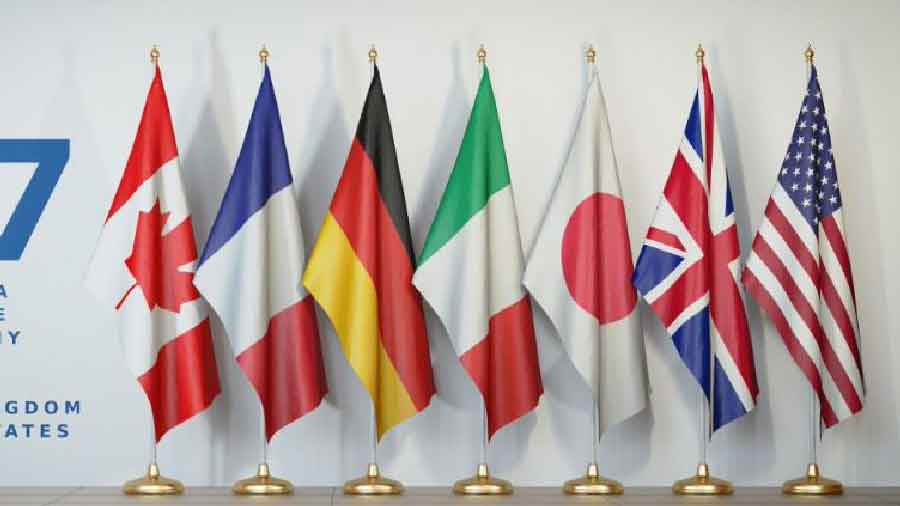The US has said it is "determined" to enforce a price cap on Russian oil announced by the G7 countries, terming it a powerful tool that will significantly reduce Moscow's main source of funding for its illegal war in Ukraine and help fight global inflation.
Members of the G7 grouping vowed on Friday to "urgently" move towards implementing a price cap on Russian oil imports in a bid to shrink a key source of revenue the country uses to finance its war in Ukraine.
We seek to establish a broad coalition in order to maximise effectiveness and urge all countries that still seek to import Russian oil and petroleum products to commit to doing so only at prices at or below the price cap, the group said in a statement.
The G7 (Group of Seven) consists of the UK, US, Canada, France, Germany, Italy and Japan. The group is an organisation of the world's seven largest "advanced" economies, which dominate global trade and the international financial system.
"A price cap on Russian oil is a powerful tool - one part of the tool in our agenda to put downward pressure on global energy prices in a way that will benefit consumers in the US and globally," White House Press Secretary Karen Jean-Pierre told reporters during her daily news conference here on Friday.
"And we are determined to implement this policy in a way that achieves those goals," she said.
US Treasury Secretary Janet Yellen said by committing to finalise and implement a price cap, the G7 will significantly reduce Russia's main source of funding for its illegal war , while maintaining supplies to global energy markets by keeping Russian oil flowing at lower prices.
"While we have seen energy prices ease in the United States, energy costs remain a concern for Americans and continue to be elevated globally. This price cap is one of the most powerful tools we have to fight inflation and protect workers and businesses in the United States and globally from future price spikes caused by global disruptions," she said.
Responding to a question, Jean-Pierre told reporters that the impact of G7 efforts to implement a price cap is already bearing fruit.
"Reports show that Russia is already offering steep discounts - as much as 30 per cent - and long-term contracts to some countries. This also demonstrates that Russia is planning to continue supplying its oil and willing to swallow bigger discounts," she said.
"A price cap will give more countries better leverage to strike deals with Russia. We will further work in the coming weeks to determine the price cap level; release further information, including technical guidance for market participation; and announce our coalition partners as well," said the press secretary.
The G7 in its statement committed to working urgently to finalise the measure in each of its jurisdictions and acknowledged that implementation in the European Union will require unanimous agreement among all 27 member states.
Russian Central Bank Governor Elvira Nabiullina has said Russia will refuse to sell to countries that impose a cap, raising doubts about the plan, Politico reported. In May, Indian refiners purchased approximately 25 million barrels of crude oil from Russia. Russia has now emerged among the top 10 suppliers of crude oil to India. From all the crude oil purchases from overseas, India's imports from Russia have climbed more than 50 times since April.
Historically, Russia has not been a major source of fossil fuel for India but the imports of discounted Russian crude oil have seen a massive increase in the last few months.
Last month, the US pressed India to join a coalition seeking to impose a price cap on Russian oil aimed at squeezing revenue streams for Moscow and softening the global energy prices.
US Deputy Secretary of Treasury Wally Adeyemo, who was on a three-day visit to India met senior officials in New Delhi on August 26. He discussed with policy makers about economic relations between the two nations as well as measures to limit the earning of Russia post its invasion of Ukraine.
India snapped up discounted Russian oil that was shunned by buyers of Europe and other places post Russia's invasion of Ukraine.
India has not yet criticised the Russian attack on Ukraine and has been maintaining that the crisis should be resolved through dialogue.
With oil prices surging past USD 100/barrel mark, the US along with other G7 nations is looking at imposing some sort of price cap on Russian oil.
The criticism of India by the Western countries on its imports of Russian crude oil while exempting themselves from their "own illegitimate sanctions" is a reflection of their unprincipled position and double standards, Russian Ambassador to India Denis Alipov said last month.
PTI











